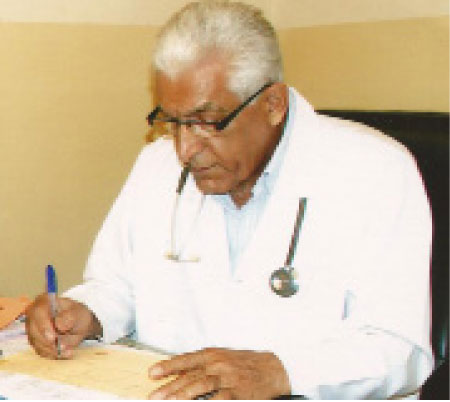
Why Do People Get Depressed
Most people have felt sad or depressed at times. Feeling depressed can be a normal reaction to loss, life’s struggles, or an injured self-esteem.
But when feelings of intense sadness - including feeling helpless, hopeless, and worthless - last for many days to weeks and keep you from functioning normally, your depression may be something more than sadness. It may very well be clinical depression - a treatable medical condition.
How Do you Know If you Have Depression?
According to the DSM-IV, a manual used to diagnose mental disorders, depression occurs when you have at least five of the following symptoms at the same time:
- A depressed mood during most of the day, particularly in the morning
- Fatigue or loss of energy almost every day
- Feelings of worthlessness or guilt almost every day
- Impaired concentration, indecisiveness
- Insomnia (an inability to sleep) or hypersonic (excessive sleeping) almost every day
- Markedly diminished interest or pleasure in almost all activities nearly every day
- Recurring thoughts of death or suicide (not just fearing death)
- A sense of restlessness or being slowed down
- Significant weight loss or weight gain
A key sign of depression is either depressed mood or loss of interest in activities you once enjoyed. For a diagnosis of depression, these signs should be present most of the day either daily or nearly daily for at least two weeks. In addition, the depressive symptoms need to cause clinically significant distress or impairment. They cannot be due to the direct effects of a substance, for example, a drug ormedication. Nor can they be the result of a medical condition such as hypothyroidism. Finally, symptoms that occur within two months of the loss of a loved one are not considered to be clinical depression.
Symptoms of Depression
According to the National Institute of Mental Health, people with depressive illnesses don’t experience the same symptoms. How severe they are, how frequent, and how long they last will vary depending on the individual and his or her particular illness. Here are common symptoms people with depression experience:
- Difficulty concentrating, remembering details, and making decisions
- Fatigue and decreased energy
- Feelings of guilt, worthlessness, and/or helplessness
- Feelings of hopelessness and/or pessimism
- Insomnia, early morning wakefulness, or excessive sleeping
- Irritability, restlessness
- Loss of interest in activities or hobbies once pleasurable, including sex
- Loss of pleasure in life
- Overeating or appetite loss
- Persistent aches or pains, headaches, cramps, or digestive problems that do not ease even with treatment
- Persistent sad, anxious, or “empty” feelings
- Thoughts of suicide or suicide attempts
While these are common symptoms of depression, they may also occur in patterns. For example, a person may experience depression with mania or hypomania - a condition sometimes called manic depression or bipolar disorder. Or the symptoms may be seasonal as in the case of seasonal affective disorder.
There are several types of manic depression. People with bipolar II disorder have at least one episode of major depression and at least one hypo manic - mild elation or high - episode. People with bipolar I disorder have a history of at least one manic - extreme elation or high - episode, with or without past major depressive episodes. A patient with unipolar depression has major depression only, and doesn’t have hypomania or mania.
Types of Depression
All depression types are not the same. Major depression also known as clinical depression and chronic depression, also known as dysthymia, are the most common types. But there are also other types of depression with unique signs, symptoms, and treatment.
A Visual Guide to Understanding Depression
What Is Major Depressive Disorder?
According to the National Institute of Mental Health, major depressive disorder is characterized by a combination of symptoms that interfere with a person’s ability to work, sleep, study, eat, and enjoy once-pleasurable activities.
There are times you may feel sad, lonely, or hopeless for a few days. But major depression - clinical depression - lasts longer and is disabling. It can prevent you from functioning normally. An episode of clinical depression may occur only once in a person’s lifetime. More often, though, it recurs throughout a person’s life.
In addition, with major depression, one of the symptoms must be either depressed mood or loss of interest. The symptoms should be present daily or for most of the day or nearly daily for at least two weeks. Also, the depressive symptoms must cause clinically significant distress or impairment in functioning. The symptoms cannot be due to the direct effects of a substance - drug abuse, medications - or a medical condition, such as hypothyroidism, nor occur within two months of the loss of a loved one.
For in-depth information, see Web MD’s Major Depression.
What Is Chronic Depression?
Chronic depression, or dysthymia, is characterized by a long-term (two years or more) depressed mood. There are also symptoms present that are associated with major depression but not enough for a diagnosis of major depression. Chronic depression is less severe than major depression and typically does not disable the person. If you have dysthymia or chronic depression, you may also experience one or more episodes of major depression during your lifetime
What Is Atypical Depression?
The key symptoms of atypical depression include:
- Overeating
- Oversleeping
- Fatigue
- Extreme sensitivity to rejection
- Moods that worsen or improve in direct response to events
Regular - or “typical” - depression, on the other hand, tends to be marked by pervasive sadness and a pattern of loss of appetite and difficulty fall or staying asleep.
For in-depth information, see Web MD’s Atypical Depression.
What Is Bipolar Depression or Manic Depression?
Bipolar disorder - sometimes referred to as manic depression - is a complex mood disorder that alternates between periods of clinical depression and times of extreme elation or mania. There are two subtypes of bipolar disorder: bipolar I and bipolar II.
With bipolar I disorder, patients have a history of at least one manic episode with or without major depressive episodes.
With bipolar II disorder, patients have a history of at least one episode of major depression and at least one hypo manic (mildly elated) episode.
For in-depth information, see WebMD’s Bipolar Disorder (Manic Depression).
How Can I Tell If I Need Treatment For Depression?
We all feel blue sometimes, and it is normal to be sad in reaction to an event that is unhappy, stressful, or traumatic. Grief will follow the illness or death of a loved one, the loss of a close relationship, or termination from a job. Financial or legal problems can cause anxiety and depressed mood.
These normal reactions to such situations are termed reactive mood disturbance or adjustment disorder. The difference between someone experiencing a reactive mood disturbance and someone who is clinically depressed is Someone with a reactive mood disturbance will soon be able to place things in perspective and move on with other areas of life. A person who is clinically depressed is unable to get past the grief or disappointment - and sometimes the grief is for non-specific or vaguely defined reasons. Clinical depression can be compared to a veil that clouds and dulls one’s entire view of the world. A depressed person may not recognize when a clinical problem is present. It is easy to explain away the symptoms by blaming them on stress or adverse events and even when stress or events are the trigger, understanding the cause is not always enough to lift the depression. Simply taking a vacation will not “cure” clinical depression, because the root of the problem will still be present upon one’s return. It is sensible to ask a close friend or relative to give an honest opinion about how they think the individual is doing. Professional help may be needed if: There is agreement that the person is not functioning well Many of the symptoms of major depression have been present for at least two week
How Is Depression Treated?
Depending on the type and severity of depression, treatment may involve:
- Psychotherapy (counselling), which is the treatment of mental and emotional disorders by psychologic techniques and counselling
- Antidepressant medications which can restore proper chemical balance in the brain
- Other treatments such as light therapy and electroconvulsive therapy
Treatment is successful in 80% to 90% of clinically depressed people.
- In mild to moderate depression, psychotherapy may be all that is needed.
- Regular exercise is also beneficial for helping to uplift mood in milder forms of depression.
- If symptoms don’t improve in a couple of months, and certainly in more severe cases of depression, medication may be needed.
- If there is a risk of suicide, medication or hospitalization may be necessary right away.
- For some people, the best and most lasting results are obtained with a combination of psychotherapy and antidepressant medication.
To be considered recovered, one must be in remission - that is, depressive symptoms must not be present - for four to six months. The person should have returned to his or her usual ways of thinking, feeling, and behaving. Regular Sadness vs. Depression
Feeling sad, down, or discouraged are natural human emotions. They’re reactions to the hassles and hurdles of life. We all feel this way at times.
We may feel sad over an argument with a friend, a breakup, or a best friend moving out of town. We might be disappointed about doing poorly on a test. Or perhaps we feel discouraged if our team can’t seem to break its losing streak. The death of someone close can lead to a specific kind of sadness - grief.
Most of the time, people manage to deal with these feelings and get past them with a little time and care.
Depression is more than occasionally feeling blue, sad, or down in the dumps, though. Depression is a strong mood involving sadness, discouragement, despair, or hopelessness that lasts for weeks, months, or even longer.
Depression affects more than a person's mood. It drains the energy, motivation and concentration a person needs for normal activities.
Depression Can Go Unrecognized
People with depression may not realize they are depressed. Because self-critical thinking is part of depression, some people might mistakenly think of themselves as a failure, a bad student, a quitter, a slacker, a loser, or a bad person.
Because depression might affect how a person acts, it can be misunderstood as a bad attitude. Other people may think the person isn’t trying or not putting in any effort. For example, a negative or irritable mood can cause someone to act more argumentative, disagreeable, or angry. That can make the person seem difficult to get along with or cause others to keep their distance. Low motivation, low energy, difficulty concentrating, and thoughts of “why bother?” can lead someone to skip classes or school.
Some people with depression have other problems as well. These can intensify feelings of worthlessness or inner pain. For example, people who cut themselves or who have eating disorders or who go through extreme mood changes may have unrecognized depression.
When depression is recognized and treated, it often clears the way for other problems to get treated, too.
Why Do People Get Depressed?
There is no single cause for depression. Many things play a role, including inherited traits from family members who may have had depression, or living in a difficult family or social environment.
Depression can happen in reaction to difficult or stressful life events. Whether a person tends to be optimistic or pessimistic can play a role in depression, too.
Depression involves the balance of naturally occurring chemicals in the brain. These chemicals, called neurotransmitters, affect mood.
Many things can affect the brain’s production of neurotransmitters - including daylight and seasons, a challenging social environment, life events, and certain medical conditions.
Sometimes a person can figure out how some of these factors may have contributed to feeling depressed. For example, in winter, when there’s less light, some people have a tendency to a kind of depression called seasonal affective disorder (SAD).
Other times, a person can become depressed for no obvious reason. Not knowing what caused someone’s depression doesn’t make it less real, though.
For further information E Mail to azadehhassan@yahoo.co.uk, text to 002207774469 at working hours, Call to Dr Azadeh at live Health Show at Afri-Radio every Wed from 9-9.30 am
Author: DR AZADEH Senior Lecturer at the University of The Gambia, W. Africa. Senior Physician
Read Other Articles In Article (Archive)





